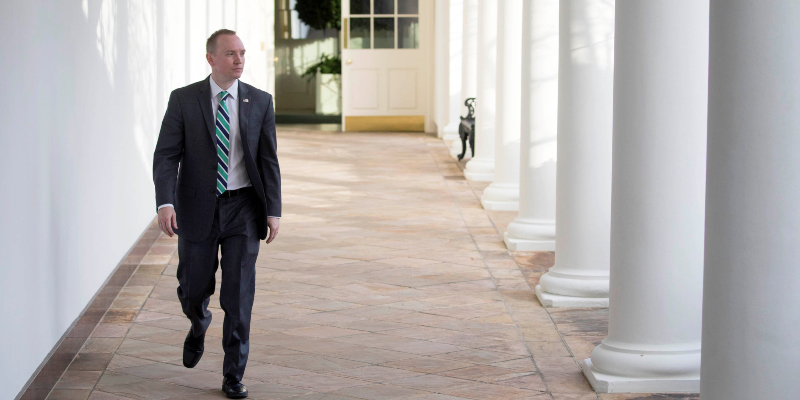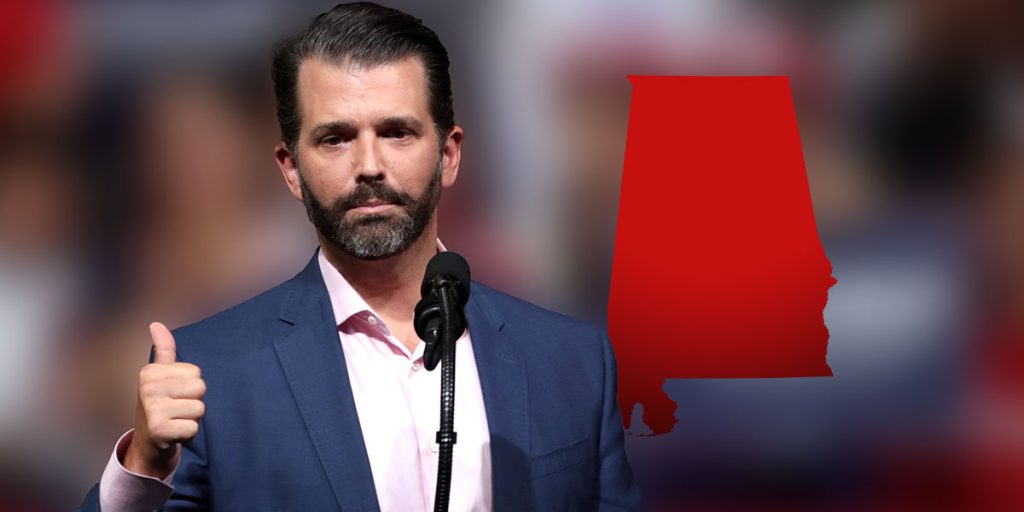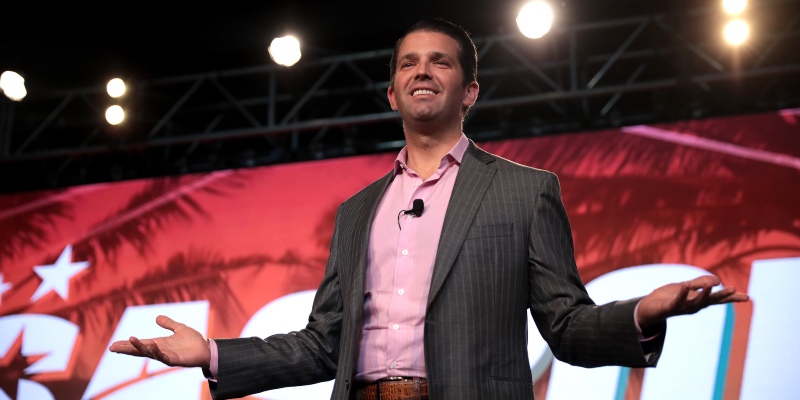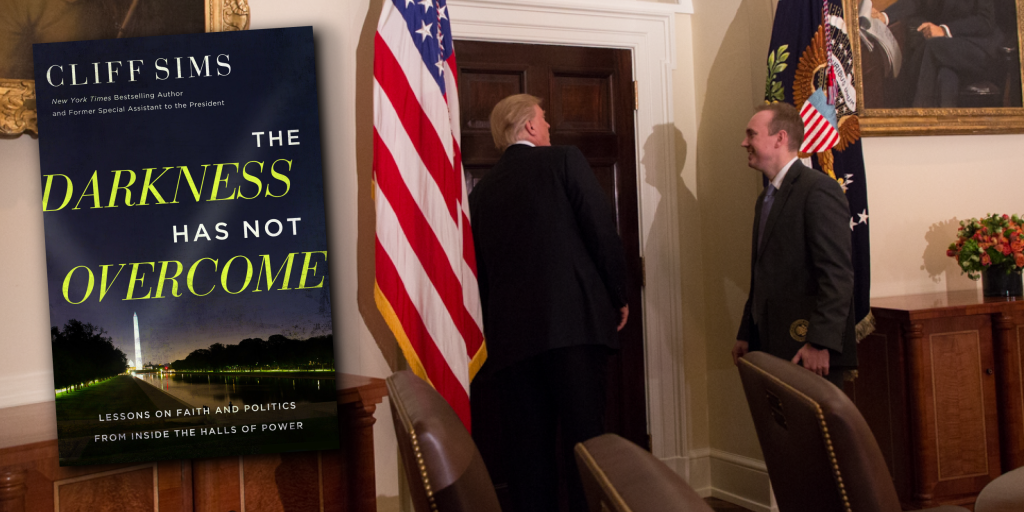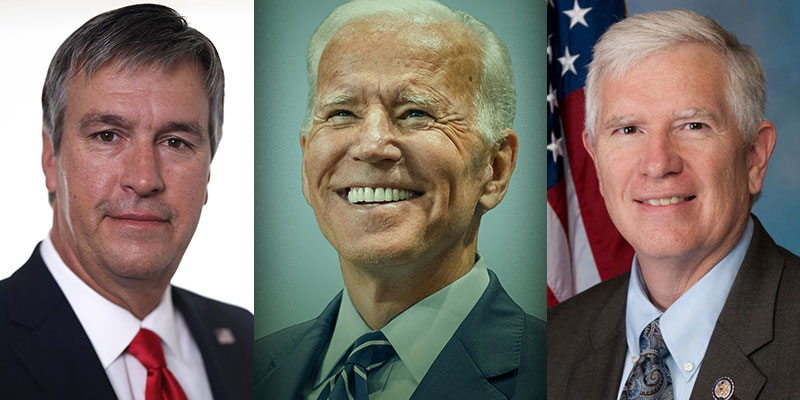From the Wiregrass to the White House, Cliff Sims has seen a lot over the past five years.
The Enterprise native served as a key adviser to then-candidate Donald Trump’s ultimately successful 2016 campaign before being appointed as director of White House message strategy and special assistant to the president when Trump took office in January 2017.
Sims served in the West Wing through May 2018, before publishing the best-selling “Team of Vipers: My 500 Extraordinary Days in the Trump White House.”
However, his journey in the Trump administration was far from complete at that point. Sims this past September was appointed as deputy director of National Intelligence for strategy and communications — making him one of the highest ranking officials in our nation’s intelligence community.
Sims’ service in that important role ended this past Friday, following the inauguration of President Joe Biden and confirmation of new Director of National Intelligence Avril Haines.
Yellowhammer News conducted the following Q&A with Sims on his unique service to our country and what comes next for the Alabamian:
YHN: You’ve certainly had a rollercoaster ride over the past five years, from being on the 2016 Trump campaign to serving in the White House, writing a NYT bestseller and ending up in a legal dispute with President Trump, coming back to run speechwriting for the 2020 Republican National Convention and finally ending as Deputy Director of National Intelligence. There’s probably enough there for a second book, but walk us through how you ended up back at the senior levels of the Trump administration.
Sims: Yes, it’s been a rollercoaster ride, to say the least. There was really only a brief period there in the middle when the President and I had a misunderstanding over my book, but it was resolved pretty quickly. After that I worked with the White House on a daily basis from the outside on a wide variety of projects.
When the Republican National Convention came around, the President needed someone to lead the messaging and speechwriting operation, but it couldn’t be someone currently in the White House. I was asked to do it because I had written so much for him and had a deep understanding of his views on various issues and how he liked them to be communicated. At the time I had just led communications for the Senate confirmation of John Ratcliffe, the president’s nominee to be Director of National Intelligence. I had already agreed to go back into the government as one of the DNI’s deputies, but I knew the convention was an important flashpoint in the campaign and agreed to help out.
We pulled together the entire convention in just a few weeks in the middle of a pandemic. Some of the team who produced “The Apprentice” TV show were brought in to handle the production. We had a team of about a dozen speechwriters who come together every four years to volunteer their time for the convention. We probably wrote upwards of 80 speeches. We didn’t know if it would all come together, but it did, and the President was over-the-moon about it all. I came back into the government as Deputy DNI right after the convention.
YHN: Your last post was certainly different from the more political job you originally had in the White House comms shop. Having what is commonly known as an “above top secret” clearance, what kind of new perspectives did you gain as a senior intelligence official and being the right hand of the nation’s top spy?
Sims: I gained a heightened appreciation for the threats we face as a nation and for the people whose names the world will never know who sacrifice a great deal to keep us safe. The China threat in particular sticks out. The extent of Chinese espionage activities in the U.S. is alarming—from targeting dozens of members of Congress, to infiltrating academia and think tanks, to stealing intellectual property. They play hard and they play dirty, and they intend to dominate the planet technologically, economically and militarily. One of the things I am most grateful for is that I was able to be a part of the DNI’s team that shifted focus and resources to address the China threat. I believe history will judge that to be an important moment.
YHN: Speaking of your intelligence tenure, it’s been reported by The Washington Post and Axios, among other national outlets, that you had a significant role in closing the deal for Space Command to come to Alabama in recent weeks. Did you have a role, and, if so, how did that unfold behind the scenes?
Sims: One thing that hasn’t gotten enough attention is that career people inside the government — defense, intelligence and space experts — determined over a year ago that Redstone was the ideal location for Space Command. One of them told me it was a “no brainer.” I’ve seen politicians from other states that were in the running try to claim this was some kind of political decision. That’s nonsense. Governor Ivey’s team deserves a lot of credit, and of course Senator Shelby is an absolute juggernaut in D.C. Congressmen Rogers and Aderholt were well-positioned from a committee standpoint to play important roles as well. Alabama punches above its weight in D.C. It was a team effort and a huge win for the state.
Director Ratcliffe made it a top priority to bring Space Force into the Intelligence Community as its 18th member, and space is a priority intelligence domain, so we were deeply involved in a lot of space issues. But any conversations I had with the White House or Pentagon during the decision-making process simply pointed to the facts, which made Redstone the best choice to ensure the U.S. maintains the ultimate high ground for decades to come.
YHN: Someone who we know has done heavy lifting with Space Command and countless other transformational projects for Alabama is Senator Richard Shelby, a longtime friend of yours. In your view, what does the prospect of his possible retirement mean for our state? And, from everything you have experienced behind the curtains since 2016, how has this current term cemented his legacy?
Sims: Richard Shelby is probably the most consequential Alabama politician in modern history. Name a major win for Alabama in the last 30 years and he was involved, if not the driving force. For example, the widening and deepening of the Port of Mobile is something he’s been working on for many years, long before he was the chairman of the Appropriations Committee. That initiative alone will do more for economic development in Alabama than most politicians do in their entire careers. He’s still on top of his game. What he’s done in recent years to bring FBI’s “HQ2” to Huntsville, and now Space Command—these are transformational things. Every lawmaker in D.C. has a story about how they thought they were getting something done for their state, only to find out at the last minute that Sen. Shelby had swooped in and got it done for Alabama. I hope he stays for many years to come because he will be missed when he’s gone.
YHN: Whether it be at the White House or in the intelligence community, what are the top highlights that stand out from your service to our country since 2016? Tell us about some of your favorite moments, achievements and/or projects. Similarly, is there anything in particular — if you could — that you would go back and do over again?
Sims: It’s the small moments that stick out to me right now after having just come out of it. I remember being with the President when he was told for the first time that a member of the military was KIA during a special operations mission he had ordered. I remember getting to be the first one to tell the President that we’d reached a deal in Congress and were about to pass the largest tax cut in a generation. I remember the first time I walked up to the memorial wall in CIA and saw fellow Alabamian Mike Spann’s name written in the Book of Honor as the first American KIA in Afghanistan after 9/11. There are so many. There are plenty of things I would do differently with the benefit of hindsight, but it has been an extraordinary run these last few years so I’m glad everything played out the way it did, even if it wasn’t always a smooth ride.
YHN: The Republican Party, post-November and post-Georgia, is certainly looking in the mirror right now to figure out what went wrong and where the GOP goes from here. What’s your outlook on the future of the Republican Party, post-Trump?
Sims: There will have to be some soul searching. Regardless of what anyone thinks of Trump, he reshaped the political map by building a coalition of working class voters across demographic groups. He made serious inroads with Black and hispanic voters because he actually pursued their votes and talked about issues that resonate in their communities. Republicans cannot return to being the party of the so-called elites and Wall Street. Keeping those rural, working-class voters turning out for the GOP could be the difference between being stuck in the political wilderness or rebuilding a long-term governing majority.
YHN: We’ve covered a lot about your recent past here, but knowing you, you’re just getting started on the next big thing. What are you planning to do now that you’ve served your final day in the federal government?
Sims: Well, I hope it’s not the final day. I don’t know what it will look like in the future, but I definitely hope to serve again if the opportunity presents itself.
My wife and I just adopted a three-year-old little boy, Shep, from Colombia so I’m excited about spending more time with them and not having to commute back-and-forth to D.C. I’m returning as CEO of Telegraph Creative, a branding, marketing and advertising agency in Birmingham. We just finished construction on a brand new office and we’re probably the fastest-growing creative services firm in the state, so we’re building something really special there.
I’ll continue to be involved in the national security space and have some other things in the pipeline that I look forward to sharing with everyone soon.
Sean Ross is the editor of Yellowhammer News. You can follow him on Twitter @sean_yhn




